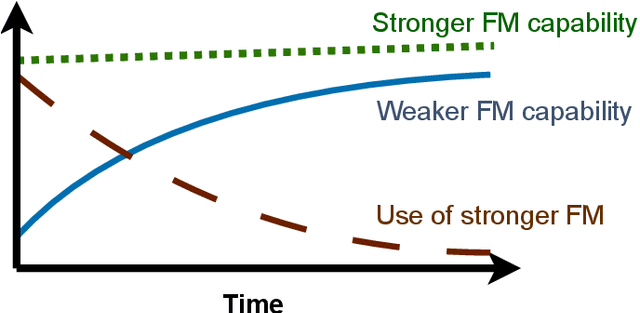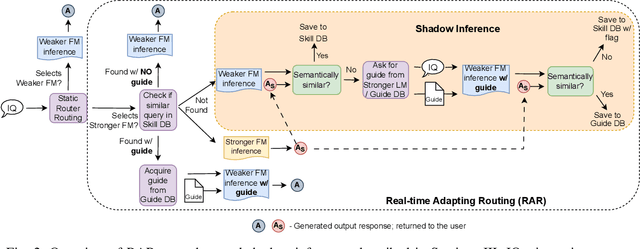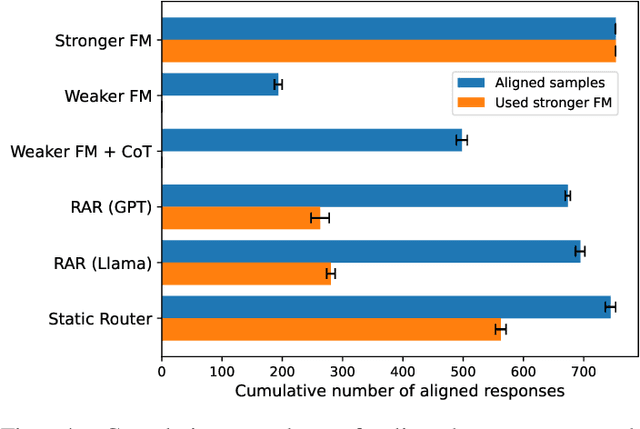Kirill Vasilevski
Justina
The Hitchhikers Guide to Production-ready Trustworthy Foundation Model powered Software (FMware)
May 15, 2025
Abstract:Foundation Models (FMs) such as Large Language Models (LLMs) are reshaping the software industry by enabling FMware, systems that integrate these FMs as core components. In this KDD 2025 tutorial, we present a comprehensive exploration of FMware that combines a curated catalogue of challenges with real-world production concerns. We first discuss the state of research and practice in building FMware. We further examine the difficulties in selecting suitable models, aligning high-quality domain-specific data, engineering robust prompts, and orchestrating autonomous agents. We then address the complex journey from impressive demos to production-ready systems by outlining issues in system testing, optimization, deployment, and integration with legacy software. Drawing on our industrial experience and recent research in the area, we provide actionable insights and a technology roadmap for overcoming these challenges. Attendees will gain practical strategies to enable the creation of trustworthy FMware in the evolving technology landscape.
Real-time Adapting Routing (RAR): Improving Efficiency Through Continuous Learning in Software Powered by Layered Foundation Models
Nov 14, 2024



Abstract:To balance the quality and inference cost of a Foundation Model (FM, such as large language models (LLMs)) powered software, people often opt to train a routing model that routes requests to FMs with different sizes and capabilities. Existing routing models rely on learning the optimal routing decision from carefully curated data, require complex computations to be updated, and do not consider the potential evolution of weaker FMs. In this paper, we propose Real-time Adaptive Routing (RAR), an approach to continuously adapt FM routing decisions while using guided in-context learning to enhance the capabilities of weaker FM. The goal is to reduce reliance on stronger, more expensive FMs. We evaluate our approach on different subsets of the popular MMLU benchmark. Over time, our approach routes 50.2% fewer requests to computationally expensive models while maintaining around 90.5% of the general response quality. In addition, the guides generated from stronger models have shown intra-domain generalization and led to a better quality of responses compared to an equivalent approach with a standalone weaker FM.
Watson: A Cognitive Observability Framework for the Reasoning of Foundation Model-Powered Agents
Nov 05, 2024



Abstract:As foundation models (FMs) play an increasingly prominent role in complex software systems, such as FM-powered agentic software (i.e., Agentware), they introduce significant challenges for developers regarding observability. Unlike traditional software, agents operate autonomously, using extensive data and opaque implicit reasoning, making it difficult to observe and understand their behavior during runtime, especially when they take unexpected actions or encounter errors. In this paper, we highlight the limitations of traditional operational observability in the context of FM-powered software, and introduce cognitive observability as a new type of required observability that has emerged for such innovative systems. We then propose a novel framework that provides cognitive observability into the implicit reasoning processes of agents (a.k.a. reasoning observability), and demonstrate the effectiveness of our framework in boosting the debuggability of Agentware and, in turn, the abilities of an Agentware through a case study on AutoCodeRover, a cuttingedge Agentware for autonomous program improvement.
 Add to Chrome
Add to Chrome Add to Firefox
Add to Firefox Add to Edge
Add to Edge